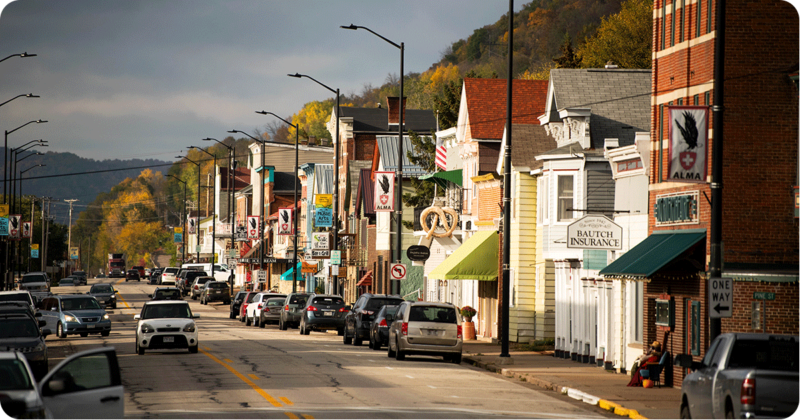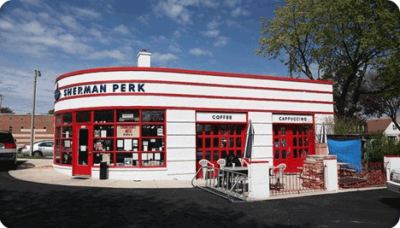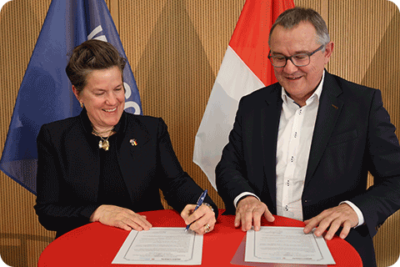
By Missy Hughes, Secretary and CEO, Wisconsin Economic Development Corporation
At the Wisconsin Economic Development Corporation (WEDC), our mission is to build an economy that works for everyone—whether you live in a bustling city or a rural town. In fiscal year 2025 (FY25), which ended June 30, we saw that vision come to life through the creativity and determination of our local partners. Their efforts, supported by WEDC investments, are transforming communities across the state into places where people and businesses want to put down roots and grow.
This past year, WEDC contracted 360 grants, loans, tax incentives, and other financial awards totaling $197.7 million—the highest volume in five years. Of those, 259 were grants to businesses and communities, totaling $41.2 million. These investments are helping communities revitalize main streets and create spaces that foster connections, support local entrepreneurs, attract new businesses, and enable existing businesses to grow.
One of the most impactful programs was the Small Business Development Grant (SBDG) pilot. Originally budgeted at $2 million, it ultimately delivered nearly $4.7 million to 29 local partners in 25 counties. Nearly three-fourths of those grants went to communities with fewer than 15,000 residents. In places like Medford and Ripon, these funds are helping to launch business incubators, support startups, and renovate storefronts—bringing new life to downtowns and empowering local entrepreneurs.

Renovated gas station now serves up coffee and cappuccino.
Our redevelopment programs also expanded their reach. Brownfields and Idle Sites Redevelopment grants were awarded in more counties than ever before, including first-time recipients in Juneau, Vilas, Dodge, Langlade, and Taylor counties. These grants are helping communities turn underused or contaminated properties into vibrant assets. In Elkhorn, for example, a former industrial site is being transformed into a mixed-use development with retail, housing, and green space—bringing new energy and economic activity to the area.
The Community Development Investment (CDI) grant program also made a significant impact. Nearly one-third of CDI awards went to communities that had never received funding before. In Prairie du Chien, a CDI grant helped restore a historic building into a community hub with retail and co-working space. In Florence County, funding supported the creation of a new childcare center—addressing a critical need for working families and helping employers attract and retain talent.
Housing emerged as a major theme in FY25. WEDC supported the creation of 2,070 planned housing units across 16 counties—the highest number of housing-related grants since 2020. These projects are helping communities meet workforce needs and attract new residents. In Dodge County, a former school is being redeveloped into affordable apartments. In New Richmond, a new library and housing complex is creating a vibrant downtown anchor that blends education, culture, and living space.

Secretary Hughes signs a memorandum of understanding to increase collaboration in global trade with Germany.
We also made strategic investments to attract and grow businesses. Yaskawa, a global leader in robotics, is relocating its North American headquarters to Franklin with support from $18 million in Enterprise Zone incentives. Worthington Cylinders expanded in Calumet County, and Associated Milk Producers rebuilt in Columbia County—creating jobs and strengthening local economies.
On the global stage, Wisconsin continued to build international partnerships. Governor Evers led a trade mission to Germany and France, while WEDC facilitated missions to Australia, China, and Mexico. These efforts are helping Wisconsin companies expand their reach and bring new investment home.
FY25 was a year of impact, growth, and collaboration. These accomplishments reflect the dedication of our staff, the strength of our partnerships, and our shared commitment to building a vibrant economy for all Wisconsinites.
